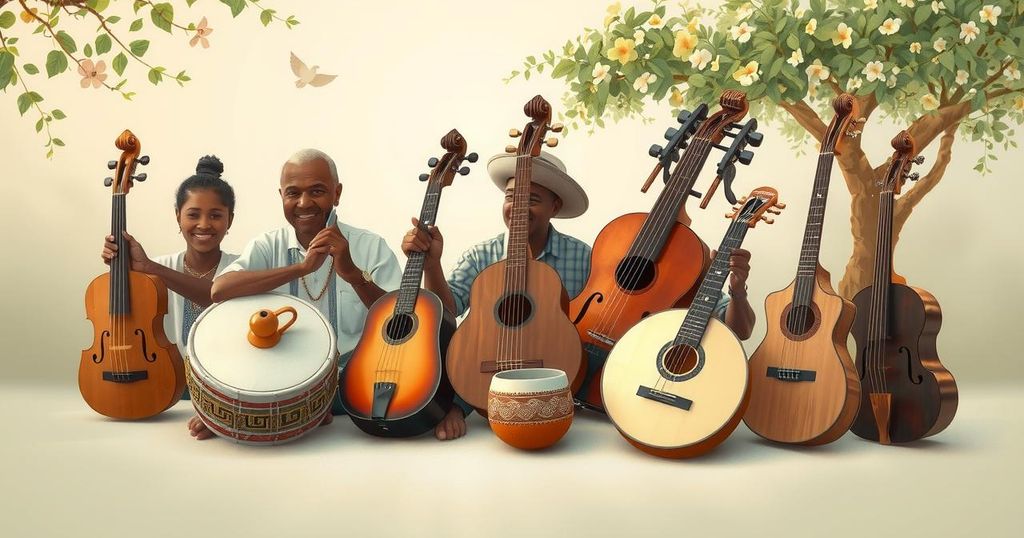Abdel Basset al-Sarout, a prominent voice of the Syrian revolution, became iconic for his songs against the Assad regime. Following his death in 2019, Ayman al-Masri, the poet behind many of Sarout’s lyrics, emerged as a key figure. Their partnership reflected the spirit and struggles of a nation in turmoil, as art became entwined with resistance, embodying hope and resilience for the future of Syria.
Abdel Basset al-Sarout, a central figure in the Syrian revolution, became a symbol of defiance against the Assad regime. His image features prominently throughout Syria, while his unfiltered voice resonates as both ringtones and protest anthems. Sarout’s tragic death in 2019 cut short his influential role, but his songs live on through generations of Syrians now free to sing them openly in the streets. At the center of this musical legacy is Ayman al-Masri, who wrote many of Sarout’s songs, despite remaining largely unknown.
Ayman al-Masri, a 52-year-old lyricist, transitioned from selling car parts and running a cake factory to becoming a lyrical voice of the Syrian revolution. His partnership with Sarout began unexpectedly when the singer sought refuge after a protest. Recognizing Sarout as a famous soccer goalkeeper, Masri quickly formed a creative alliance that would produce around 130 protest songs, with “Janna, janna, janna” standing out as a significant anthem during the uprising.
As the conflict escalated and violence surged, Masri’s music shifted from triumphant to somber reflections of despair. Despite the dangers from regime forces, the duo remained committed to their cause, with Masri often risking his life to deliver new lyrics to Sarout. Tragically, as Homs battled relentless siege, the strains on their collaboration grew, reflecting diverging paths as Sarout embraced armed resistance while Masri held onto pacifism.
The ongoing conflict took a heavy toll on Sarout, both personally and physically. As the war took his family, including his father and brothers, his desire for freedom deepened. In 2019, he sustained fatal injuries during a confrontation, dying shortly afterward—an end that marked a devastating chapter in an inspiring narrative. Khalid, a close friend, recounts the profound loss felt across the community, while Masri grapples with the absence of his collaborator and friend.
Today, Masri wanders the remnants of Homs, filled with memories of his time with Sarout. In the absence of an official anthology, his songs and the essence of Sarout remain alive through a handwritten notebook that documents their work. Now, freed from the regime’s oppression, Masri finds purpose anew, writing songs that speak to hope and resilience in rebuilding a war-torn society. His experience encapsulates a poignant journey of art, resistance, and the enduring spirit of a people determined to forge a brighter future.
The story of Abdel Basset al-Sarout and Ayman al-Masri represents the profound connection between music and revolution in Syria. While Sarout’s legacy shines through his impactful songs, Masri’s role as the unseen lyricist contributes significantly to their narrative. Together, they symbolize the struggle and resilience of a nation fighting for freedom, illustrating how art can thrive even in the darkest of times. As Syria continues to rebuild, both lyricist and singer remain integral to its collective memory and cultural identity.
Original Source: www.wxxinews.org




